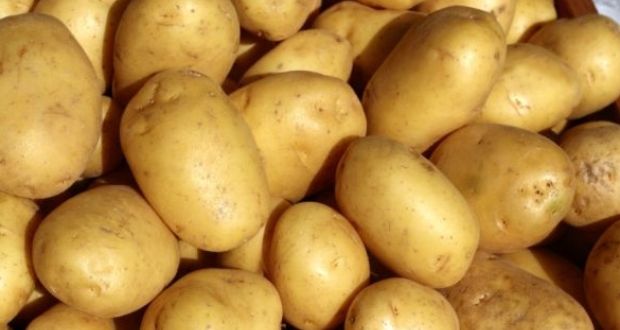From time immemorial, Plateau State has been known as the leading state in Irish potato production in the country, and many farmers engage in farming it alongside other crops. People from all parts of the country look up to the state when procuring potatoes in large and cheaper quantities.
This implies that the tuberous vegetable is cheaper on the Plateau than in other parts of the country. It is more common and available in the state.
Year in and year out, the farmers record bountiful yields, be it during the rainy season or the dry season cultivation using the irrigation method.
However, the crop is scarce during this period, such that even where it is available, it is sold at an exorbitant price.
Marketers blame forex, others as fuel scarcity returns to Lagos, Abuja
NIPSS DG tasks citizens on behavioural change toward Nigeria
Over the years, there have been times when the crop had some challenges, and farmers have had to cry out. Some of the challenges ranged from the potato fungus called blight, which attacked the crop and hampered good germination. There was also the unavailability of pesticides to fight the disease, a lack of access to fertilisers to nourish the crop on the farm, and lack of quality seedlings, among others.
Presently, however, the crop is costly and, at the same time, not as readily available as it should be, and the farmers spoke about the situation, explaining what could be the cause.
Those who spoke to our correspondent acknowledged the previously mentioned challenges, which have been the problem of planting the crop from time to time. But in addition to that, other factors have also been outlined as causes of the scarcity and high cost of the crop.
An Irish potato farmer in Jos, the state capital, Nyam Michael, attributes the prevailing scarcity to insecurity and violence in parts of the state, which led to the loss of lives and the destruction of property and farmlands.
The farmer said they were seriously affected by the crisis. He explained that the resurgence of violence in the state this year hit two local government areas, Bokkos and Mangu, which are the places where the crop is mostly cultivated, and that the crisis occurred during the cultivation season.
As a result, he said, potato production was obstructed. Therefore, there is now a serious drop in the number of farmers engaged in farming the crop.
He said another reason for the scarcity and high cost of Irish potatoes is the economic hardship in the country.
According to Michael, the general hardship has also led to high cost for the little resources that low-income farmers have at their disposal to put into their farming activities.
He pointed out that a 50kg bag of the crop was sold for between N25,000 and N30,000 last year, but that it is currently being sold for N30,000 and above, stressing that from projections, the price could rise to N50,000 between now and December.
He advised the government to continue doing all they could to boost the production of Irish potatoes and to resolve the issue of insecurity and economic hardship that affected the cultivation of the crop this year.
Another farmer, Mrs Atong James, on her part, said due to previous years’ experience of the farmers who suffered from the havoc of potato blight, many refrained from rainy season cultivation of the crop, which is now being harvested.
According to her, most farmers this year opted for dry season farming, which commences in October through November because the blight disease occurs mostly during the rainy season rather than the dry season.
Mrs James, who farms in the Lamingo area of Jos, said the economic hardship among farmers is also a factor that made many steer clear of cultivating the crop this year.
She said even some of those who farmed it this year only did so for seedlings and not for consumption, so they hid their harvest, waiting for when the cost of seedlings would go high so as to make more profit.
She said last year, a bag of potatoes was bought for N18,000 and slightly above, but that this year (currently), the price is N23,000 and above at markets in the local government areas where they are cultivated.
But when it is brought to Jos, the state capital, the price will definitely increase, she added.
According to her, about two to three years ago, a bag was even bought for between N10,000 and N12,000 until it kept increasing gradually until this year when other factors caused an exorbitant price hike as well as scarcity.
Speaking on the current price of the crop, a dealer, Faruq Rabilu, who purchases the produce from Bokkos, Mangu and Barkin Ladi, among others, and sells in Jos, said the price increased due to factors that affected Irish potatoes this year.
Rabilu, who said he has been in the business for over four years and sells the potatoes in the Farin Gada area of Jos as well as in Abuja and other states, said he bought a bag for N28,000.
He said after that, he buys new sacks to re-bag, sew the sacks, and pay for workmanship.
Thereafter, he said he transported them from the markets. And after all is said and done, he sells at N33,000 per bag, he said.
Rabilu blamed the exorbitant cost of the crop on the high cost of cultivation as well as the impact of the fuel subsidy removal, which is causing hardship among the citizenry.

 Join Daily Trust WhatsApp Community For Quick Access To News and Happenings Around You.
Join Daily Trust WhatsApp Community For Quick Access To News and Happenings Around You.

